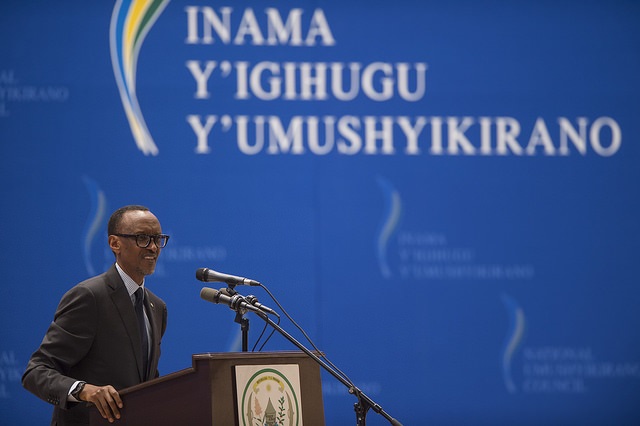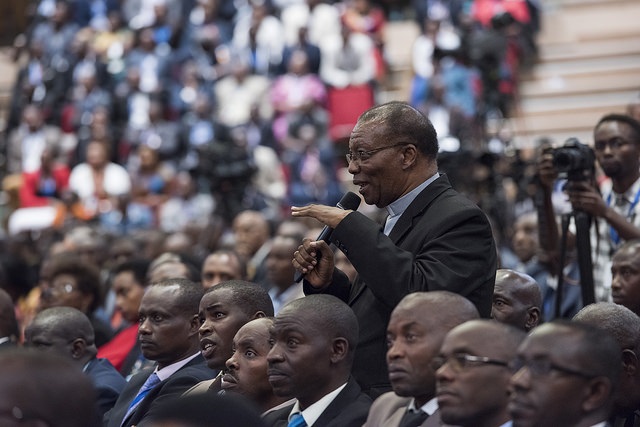
Rwanda President Paul Kagame has explained why many African countries are unhappy with the International Criminal Court (ICC), saying the Hague-based body has failed to offer international justice.
He said the court was not serving justice but political interests disguised as international justice.
“Rwanda did not become signatory to ICC because this was not justice. It was politics disguised as international justice,” Kagame said.
Kagame was talking to the international press in Kigali Friday at the end of the annual Umushyikirano – two days of debate by leaders and citizens on the state of the nation. The Umushyikirano is a forum that brings together the Rwanda president and citizens’ representatives to debate national and local issues.
“Expressing yourself as matter of right is used against you, yet we live in a world with lessons on freedom of speech. When we speak of anything that paints the West in a dark light, we pay for it, yet we are given lessons on being free.”
On the ICC, and what was termed growing anti West rhetoric in Africa, he said, “when they commit crimes, and they have committed many against Africa, why doesn’t it apply to them? When Rwanda speaks about this, we are told, we should not be speaking about anything that paints some people in a dark light.”
“I am not anti-west or anti-east. I am against being anti-self, serving someone else interest against your own,” Kagame said.
Kagame urges on service delivery
Earlier, at the close of Umushyikirano 2016, President Kagame urged Rwandans on service delivery and self belief.
“To improve service delivery, you need to change your mentality and believe in your right to demand what you are due. Providing good service is not something we need to be given, we are capable of achieving it if we set our mind to it. If we don’t demand that we get good service, we also have a problem.”
“What we do is not about being praised, it is about the interests of Rwandans. Our mindset should be about achieving everything that is within our abilities. We should not accept to be compared with developed nations of centuries ago; we should aim to be the best we can be.”
On Rwanda’s economy, Kagame said the government was doing its best to grow the economy to make sure Rwandans were standing on solid ground, with the ultimate goal of surviving without support from elsewhere. He stated that by 2020, Rwandans would have achieved a good percentage of their goals and they would use the lessons learned to move forward.
Catholic’s apology
Concerning the recent apology by a group of local catholic clergy for role of colleagues in the genocide against the Tutsi, Kagame wondered why the Vatican has failed to apologise to Rwandans for genocide against the Tutsi and yet the Pope had publicly apologised to people elsewhere in the world where Catholic Church clergy had committed far much lesser crimes.
“The Vatican has apologized elsewhere for the role of individuals who belonged to the Church, why not in the case of Rwanda? The role of the Catholic Church in the Genocide can be traced back to the intertwining of the Church and colonialism.”
Burundi crisis
On the Burundi crisis, Kagame stated that the way forward was what was already being done, which he said were the role of the facilitator and the wish of the people of Burundi. On the wish of President Benjamin Mkapa, the facilitator in the Burundi negotiations, to have all refugees sent back home, President Kagame said:
“As Rwanda, what we stand ready for is to contribute positively to the resolutions of Burundi problems. Telling refugees to go back is easy, but the question is what the consequences are? Do we also have to tell the 80,000 refugees to wake up one morning, pack up and go back because everything is fine?”

State of the Nation
On Thursday, Kagame delivered the State of the Nation address.
“There is a tomorrow, a future for you and for all of us together. For the first time, this country sees every citizen as a full stakeholder, not as someone to be singled out, hunted down, categorised, and denied livelihood, or even life,” he said.
“Looking at the arc of our journey, the difficulties encountered along the way serve a purpose because they bring us to something better. This is the source of our confidence in the future.
We have retaken our political space. It is no longer occupied by anything except the interests of Rwandans.”
 The Independent Uganda: You get the Truth we Pay the Price
The Independent Uganda: You get the Truth we Pay the Price



